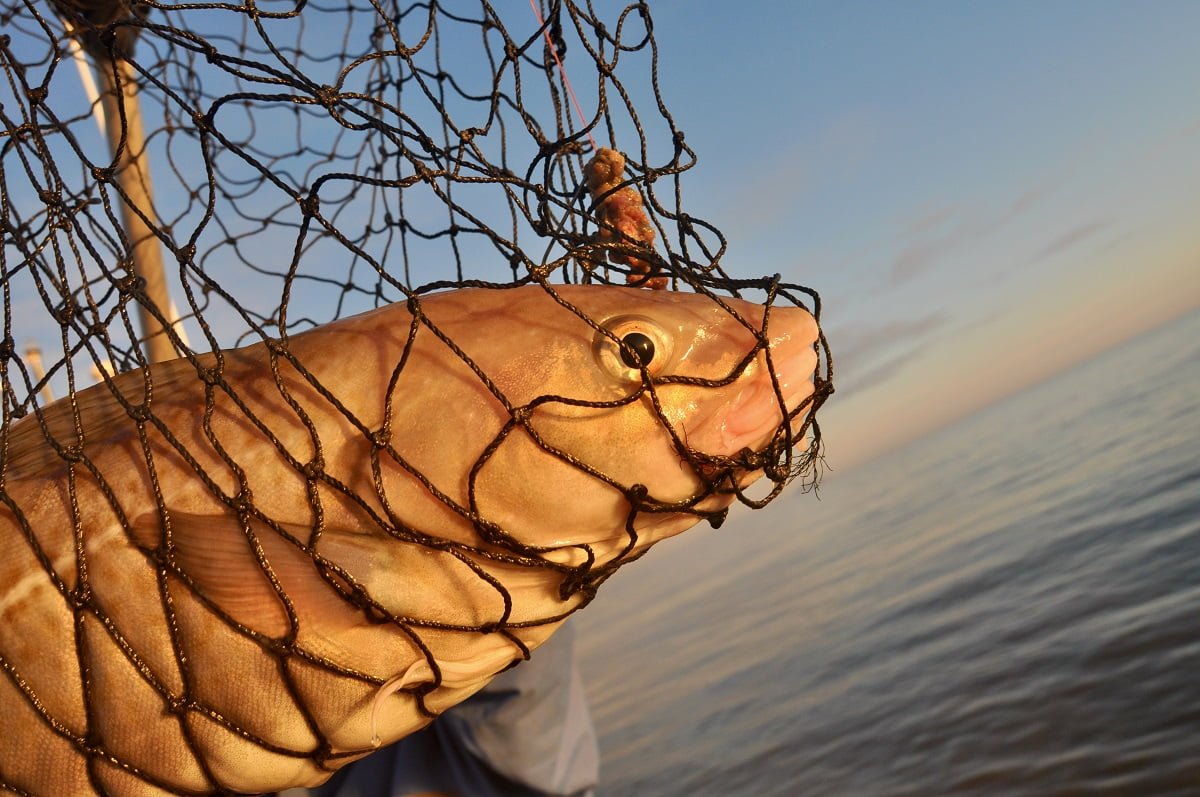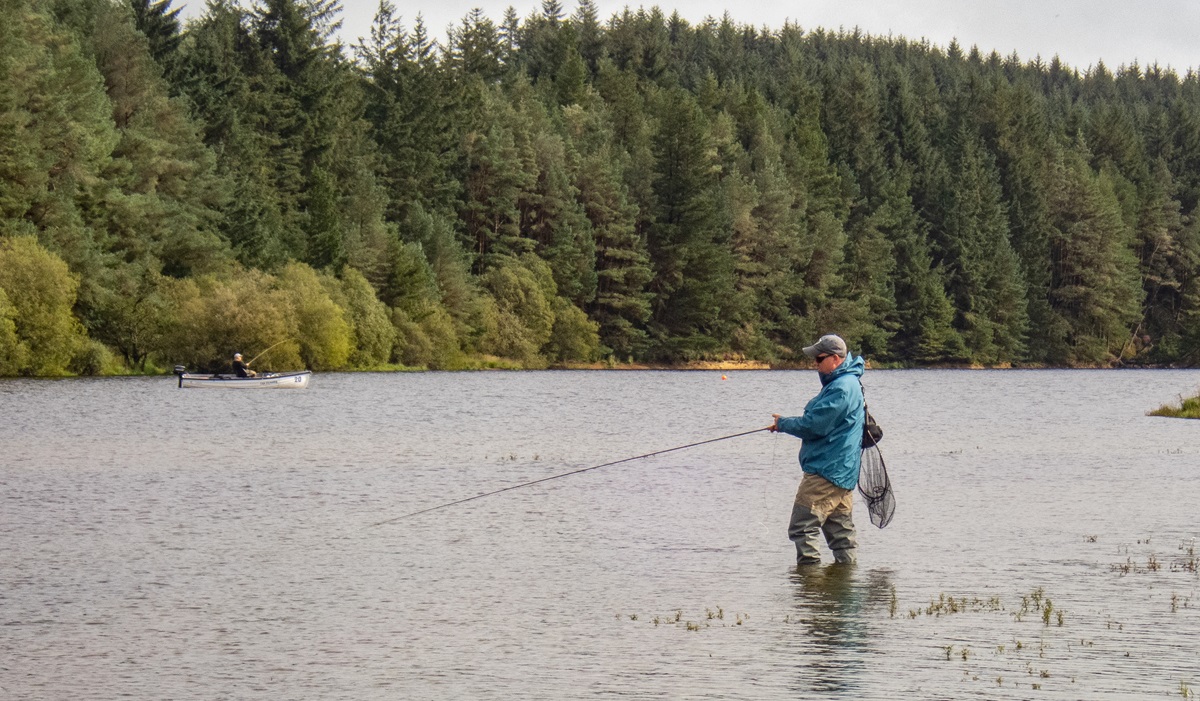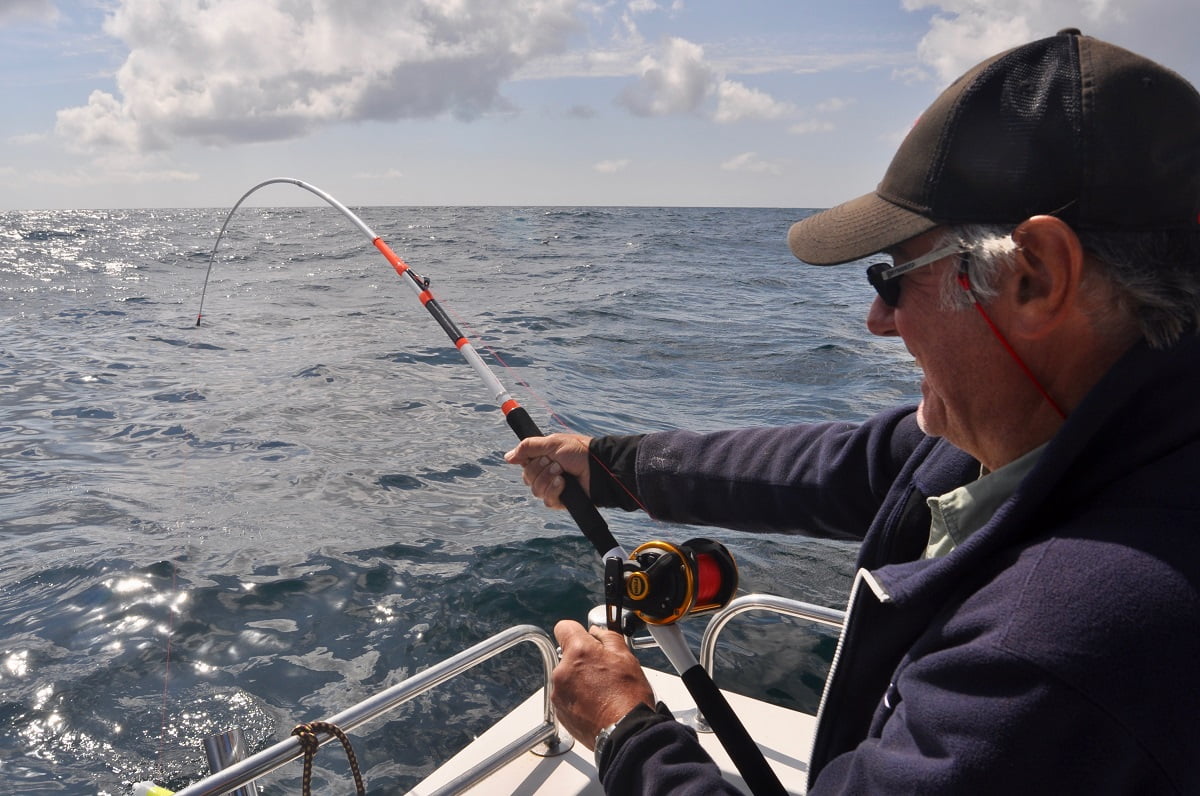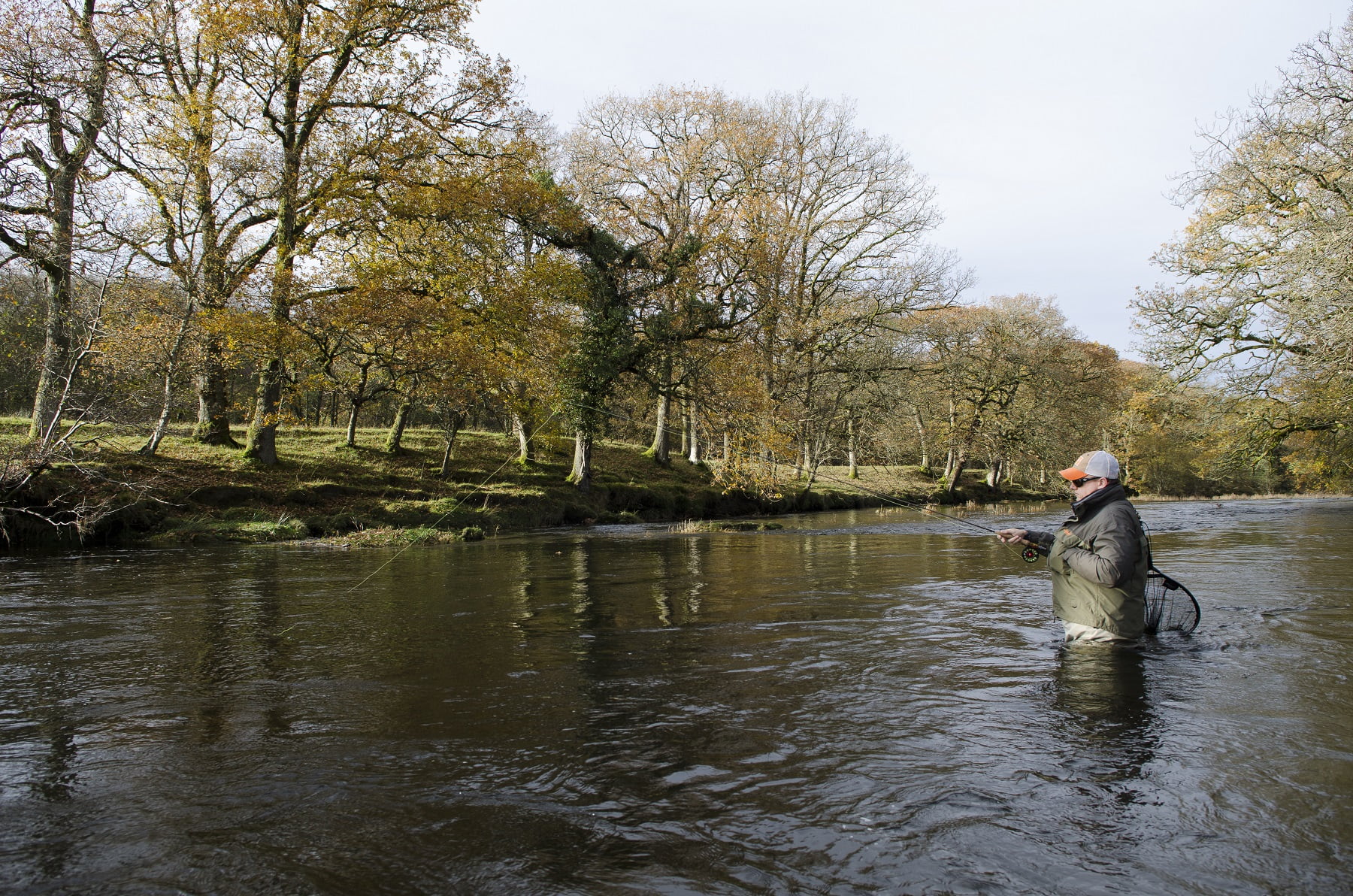Autumn sea fishing in Wales – Cod Fishing
Angling writer Dave Lewis reflects on cod fishing around the Welsh Coastline, a species that can still produce autumn and winter sport, despite reduced fish stocks. Read on to discover Dave’s essential tips and advice, that will help you maximise your chances of capturing a Welsh cod in these harder times.
It wasn’t that many years ago that longer nights and the falling temperatures that herald the onset of Autumn would mark the arrival of huge shoals of cod and codling off the coast of South Wales. These fresh run fish were drawn by an insatiable desire to gorge upon the trillions of shrimp and abundant population of green shore crab that are found within the upper reaches of the Bristol Channel, and their arrival used to attract a great many anglers who used to travel to the area to fish for them, both afloat and from the shore.
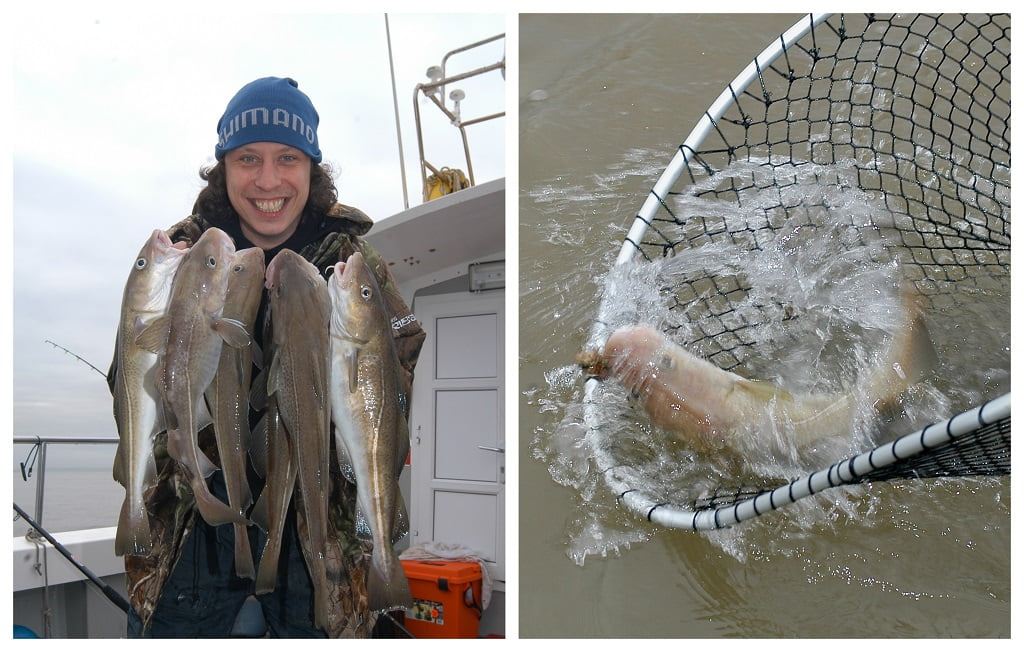
By early November the largest concentrations of cod would have started to relocate further west, with marks around Cardiff and Barry coming to the fore. Come New Year these vast shoals of fish used to include many of a much larger average size, with boat catches consisting of numerous doubles along with an occasional twenty pounder and even thirty, or forty pound plus specimens. Of course the long standing British shore caught record for cod, 44lb 8oz, was caught by Brandon Jones at Tom’s Point, Barry, in 1966.
Sadly the glory days of South Wales cod fishing are long gone. Various reasons have been suggested as to just why the numbers declined so dramatically, but personally I am firmly convinced the massive crash in numbers of fish here, and elsewhere around the British Isles, is entirely down to unsustainable overfishing.
As a result in recent years we haven’t seen anything like the huge numbers of cod that were once the norm. But each year we do get a run or a more likely several runs of fish, and on those magical days when you find yourself in just right place at the right time it is easy to imagine that the once wonderful fishing experienced throughout the 1990s and early years of the new millennium have returned.
Accurate, reliable, up to the minute information is key to success, as is so often the case with angling. Today social media is the grapevine of information for most anglers, but reports in Facebook and other similar platforms need to be taken at best with a pinch of salt. Certainly social media will give you an idea that fish have started to show and where they are being caught, which of course is very useful, but many reports are multi-shared and invariably become exaggerated so you need to confirm exactly when the ‘original post’ was posted. When it comes to up-to-the-minute reliable information nothing beats talking with friends or tackle shop owners, who can be trusted to give you an accurate account of what they have caught.
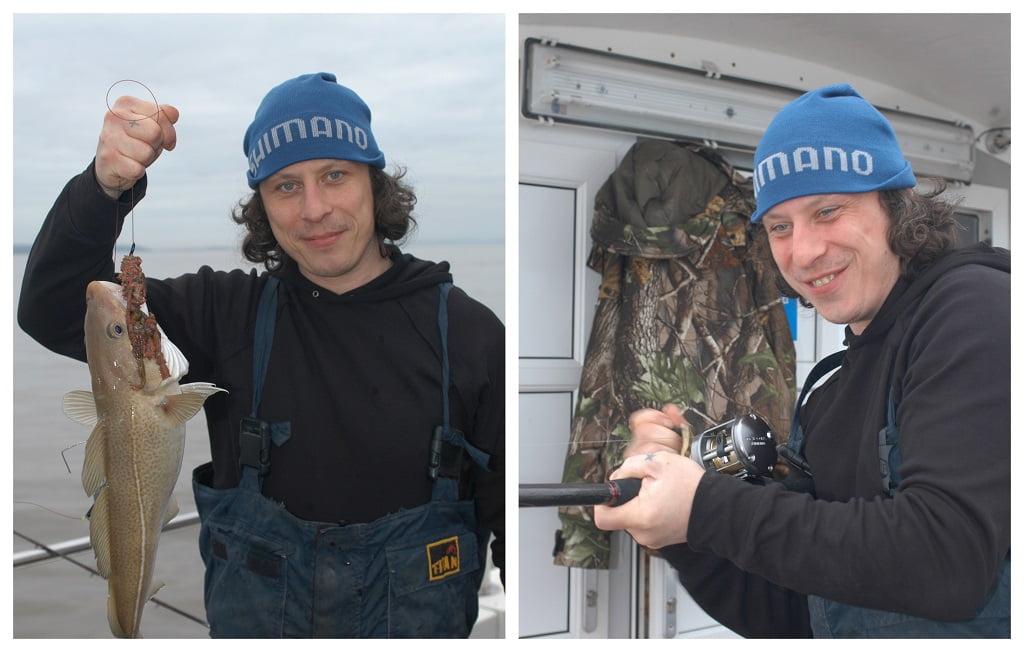
The key information you need to determine is exactly when, where and at what stage of the tide fish have been caught, and having obtained this intel you need to get fishing at the earliest opportunity. Of course there is no guarantee that the fish will still be in the same area, but it is certainly encouraging to either cast or drop a bait secure in the knowledge that fish were caught in this exact same area just a day or so before.
Back in the days when cod were prolific the key to catching them consistently was always good quality bait: it still is today. Freshly dug black lug was the number one choice with many anglers, with king ragworm and blow lug, along with squid and most forms of shellfish also producing plenty of fish. Whichever bait you used it was essential to use large juicy baits that emitted a strong scent trail. This is hardly surprising given the near zero visibility at most marks in the area meaning the only way any foraging fish was going to locate your bait was by smelling it. Top quality bait is as important today as it always has been, perhaps even more so given far fewer fish? My advice to anyone looking to target cod in the Bristol Channel this autumn and winter would be ensure you have the best quality bait you can obtain.
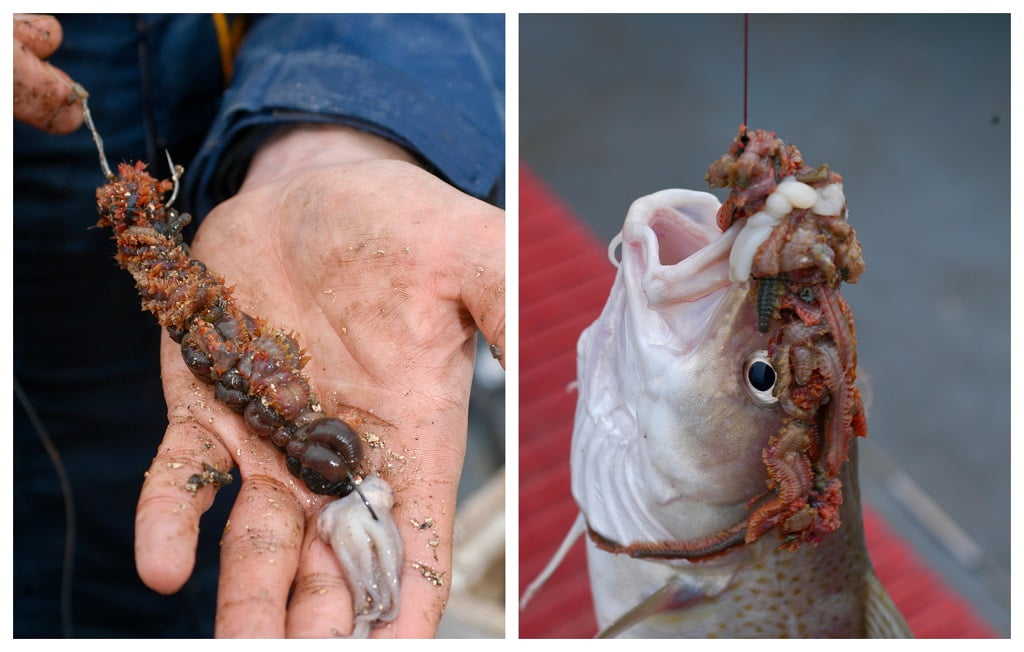
My rig of choice for cod fishing afloat is the tried and tested running leger, a simple rig that offers a perfect bait presentation hard on the seabed, which is where these fish are feeding. 50-60lb monofilament hook lengths are ideal for cod, but you should consider upgrading the breaking strain to 80-100lb whenever there is a possibility of hooking ray or conger, which will invariably be the case here in South Wales at this time of the year.
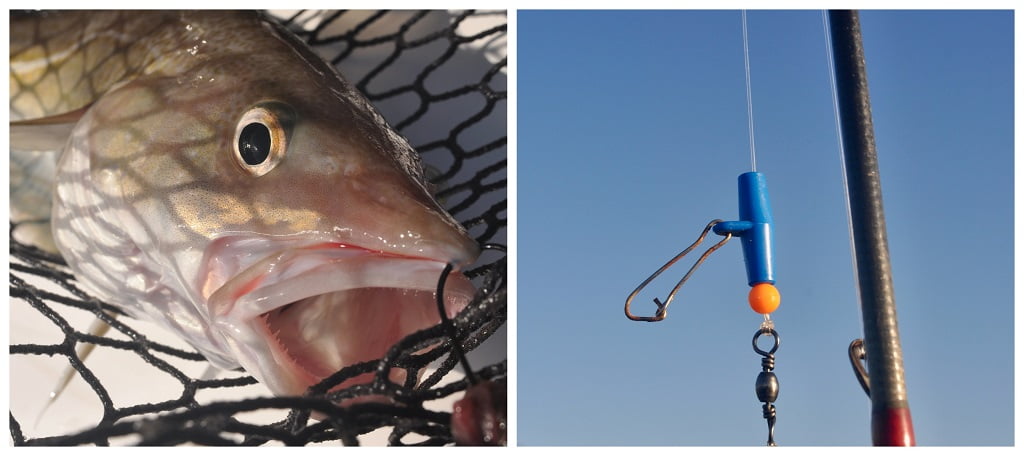
When it comes to fishing afloat I have long been an advocate of each angler using one rod each. On a typical charter boat this means to 8 or 10 rods fishing simultaneously, which in turn equates to the combined scent trail of a lot of bait drifting downtide to attract fish. Clearly the more bait in the water the more chance of attracting shoals of passing fish, hence when cod fishing aboard private boats I see a big advantage in fishing as many rods that are practical.
When someone does land a cod unless your bait has been cast out within the last ten minutes I suggest reeling in as quickly as possible, attaching a fresh bait and recasting, in order to give you your best opportunity of catching a fish while they are in the area. Given just a modest run of tide even the largest baits will have released most of their juices within 20-30 minutes of being cast out, therefore this is the time interval you should endeavour to reel in and replace each bait.
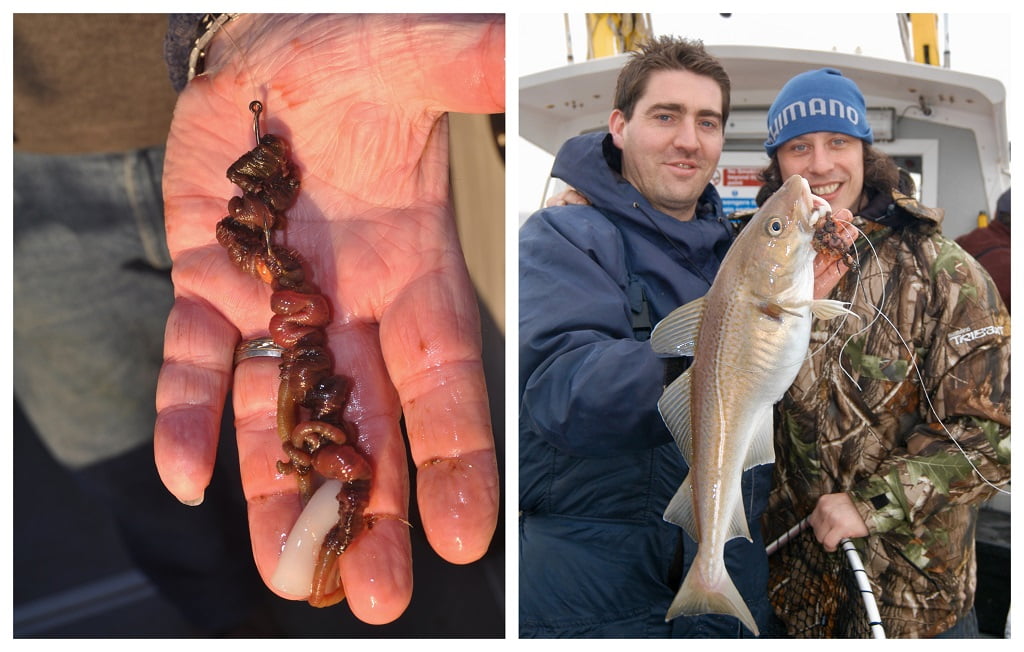
If the fishing starts off slow, which was often the case even in the golden years of South Wales cod fishing, then provided you have done your research and anchored in an area where fish have been caught in recent days, my advice is to stay put. If you see on social media that a fish or two have been caught at another area close by of course it will be a huge temptation to start the engine, haul the anchor and move. The danger is, though, that the fish may be long gone by the time you have relocated, possibly swimming right past the area you have just left. Certainly my observations in recent years bare out the ‘stay put’ theory. If you are using good bait and changing it regularly, if there are fish around you’ll likely catch a few. Remember these days a couple of fish per angler constitutes a good day in the Bristol Channel, with many boat regulars more than satisfied with a single fish.
Of course there are numerous other species you’ll likely catch while waiting for the cod to arrive, including various species of ray, conger, dogfish and huss, and spurdog if fishing deeper water marks to the west. All of these will hold your interest while waiting for the cod to arrive, plus ensure you are continually checking and refreshing your baits.
Cod fishing may not be the firm guarantee it once was but at some time this winter there will be fish to catch off the coast of South Wales. There’s really is nothing quite like the expectation of watching a rod tip on a crisp autumn or winters day, waiting for the classic double nod that indicates a cod has found your bait.
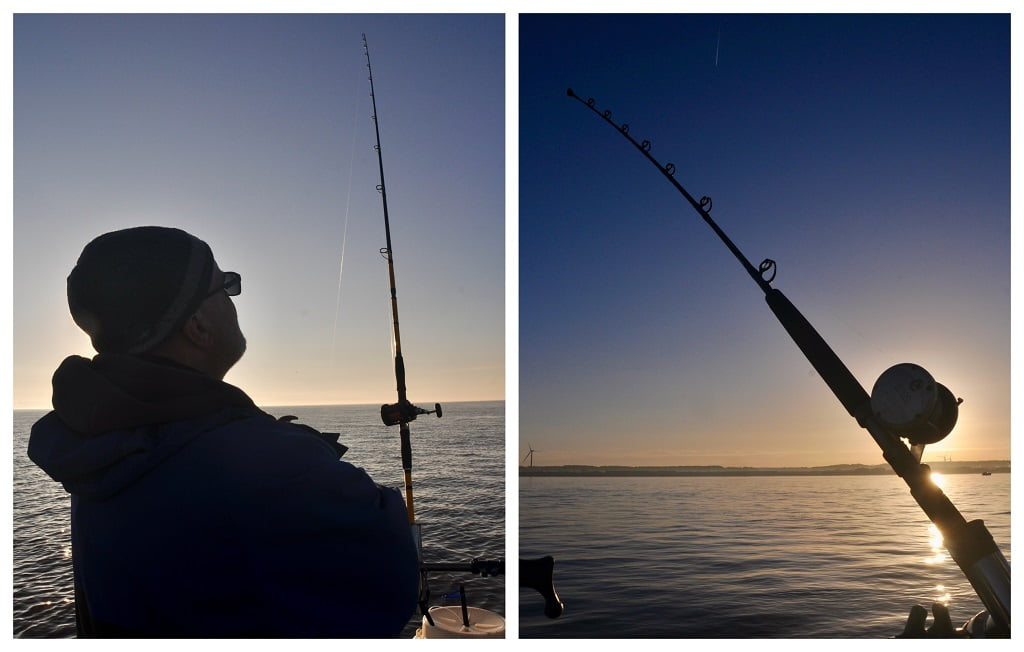
Some of the images illustrating this blog feature Stuart Cable, the original drummer with iconic Welsh rock band The Stereophonics. Stuart was a keen outdoorsman who loved many types of field sports, especially angling. Sadly Stuart passed away in June 2010.
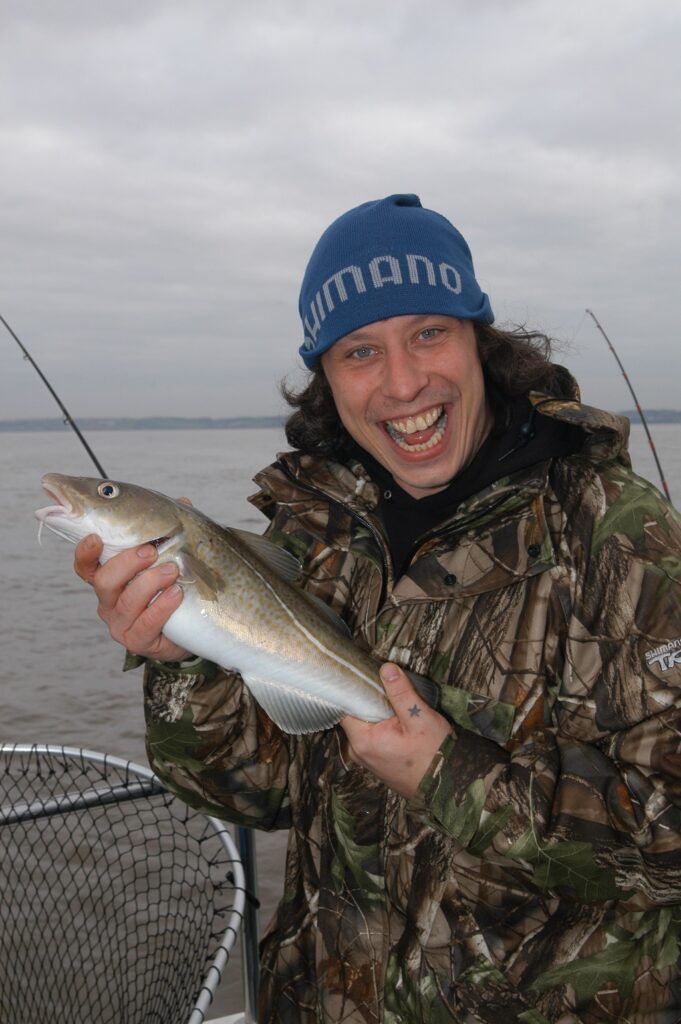
YouTube Channel
Did you know Fishing in Wales has a YouTube channel? With lots of game, coarse and sea fishing videos all ready to watch, showcasing the best of Welsh angling. So why not SUBSCRIBE HERE to keep up to date with our video content as it lands…
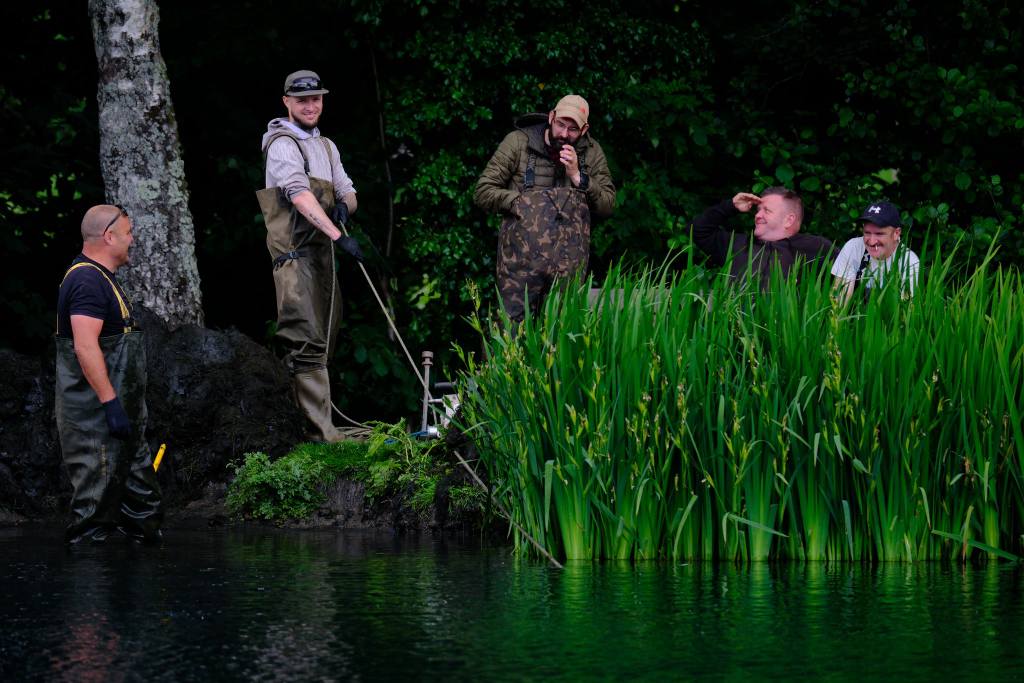
Fishing Clubs of Wales: Crow Valley Angling VIDEO
We join the Crow Valley Anglers on the Cwmbran boating lake, where we learn about the venue and the…
Read More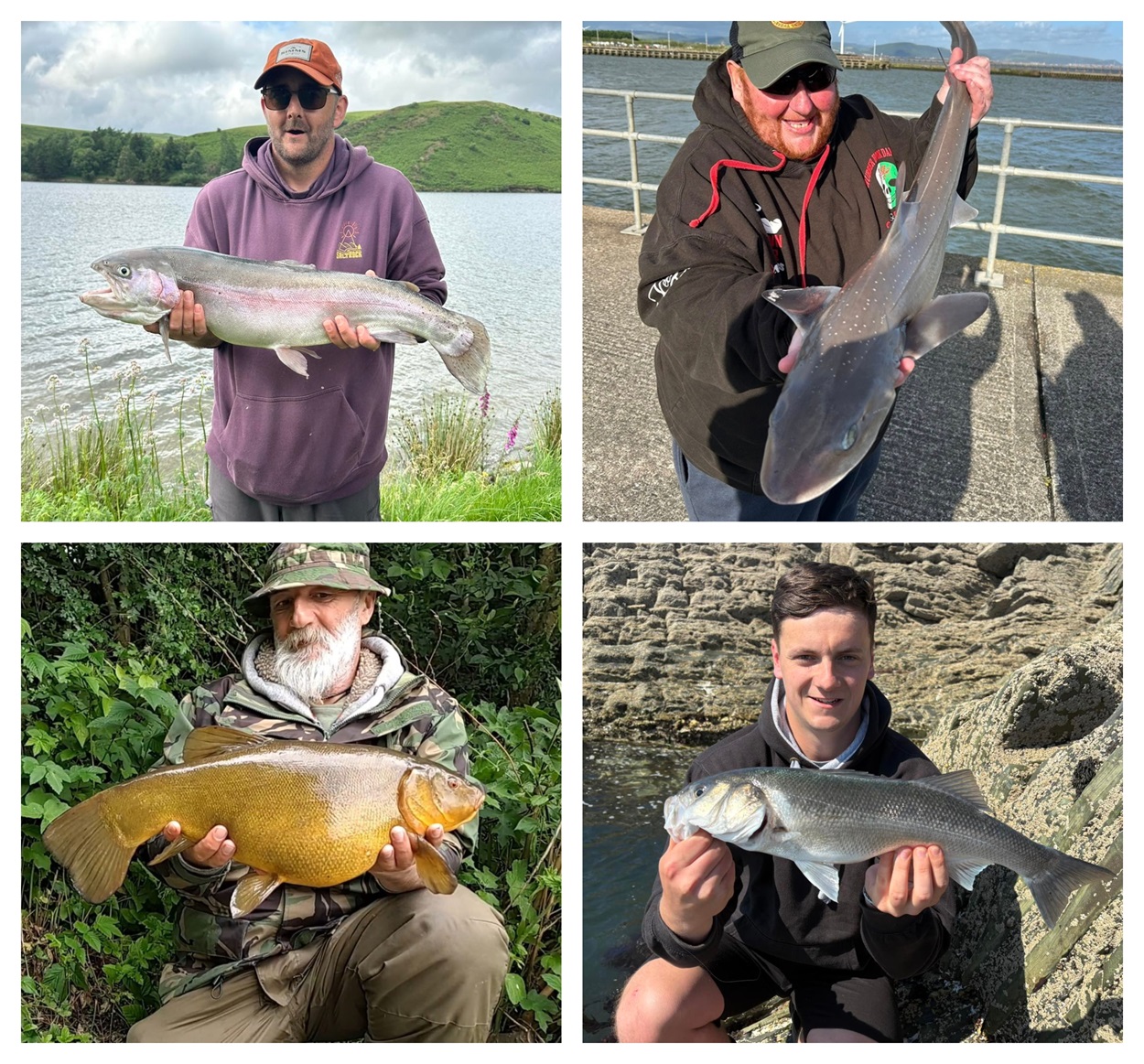
End of June 2025 Fishing Update – Game, Coarse and Sea
As we head into summer, anglers across Wales are enjoying a diverse range of fishing opportunities. While warmer river conditions…
Read More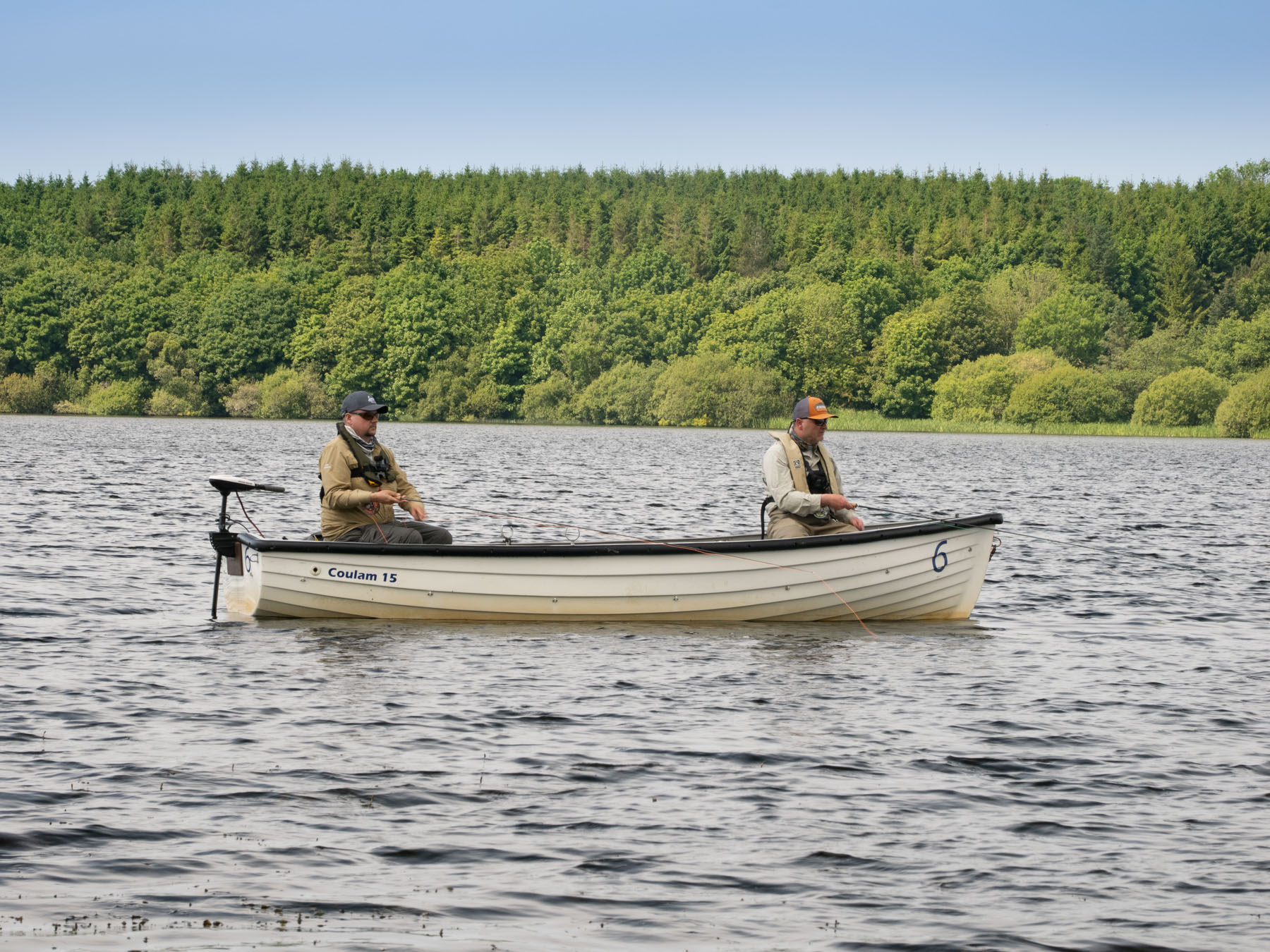
Boat Fishing on Cefni Reservoir Anglesey VIDEO
We join Ceri Thomas, Alan ‘Parf’ Parfitt and Lyn Davies on the stunning Cefni Reservoir on Anglesey for a fun…
Read More
